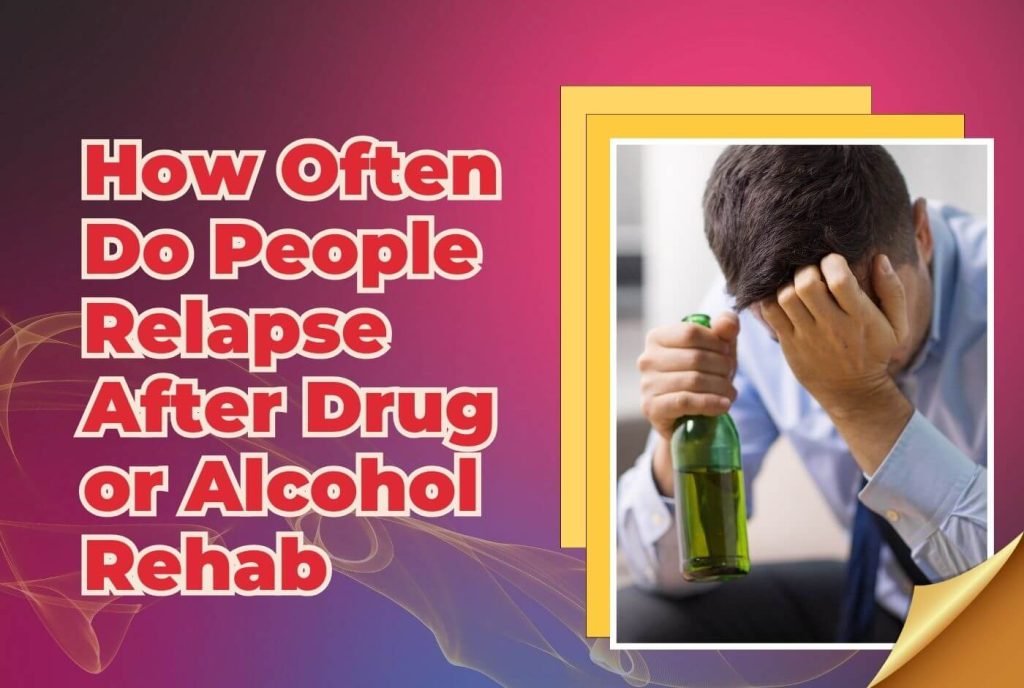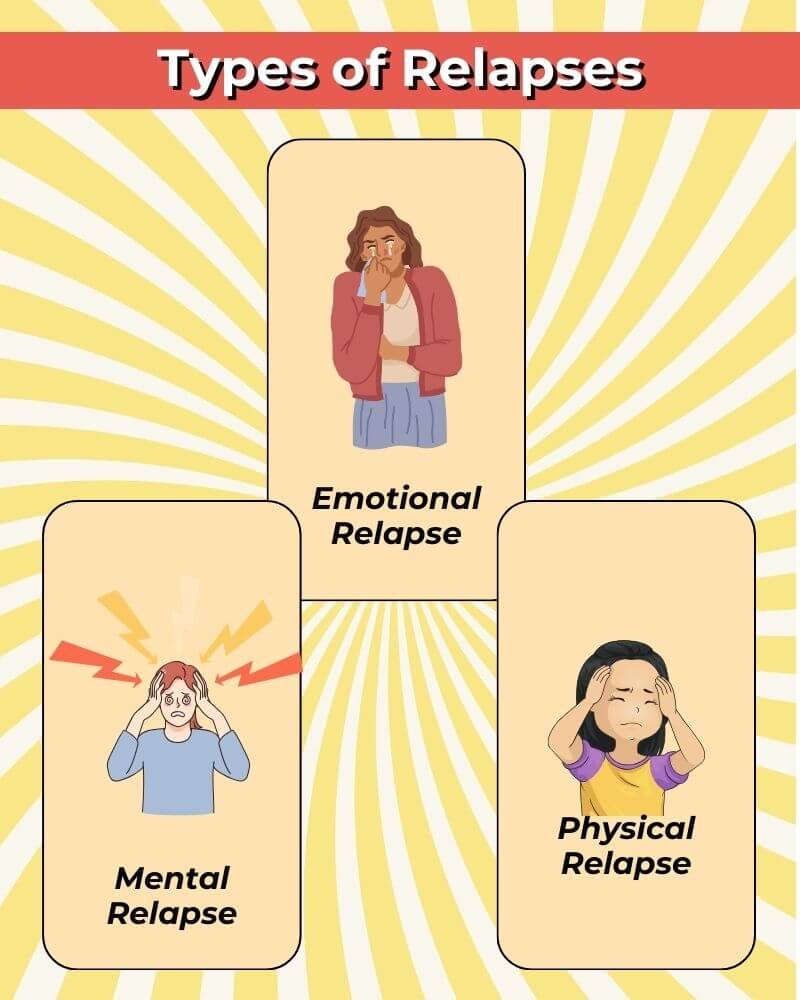According to AAA,
You can see that relapse after rehab is pretty common. And this basically varies on the duration of sobriety and the quality of treatment. One major factor that can contribute to a relapse after rehab is the length of the alcohol rehab duration. Shorter periods of rehab may not provide enough time for individuals to fully address their underlying issues and develop the necessary coping skills to maintain sobriety. Additionally, the quality of treatment received during the alcohol rehab duration also plays a critical role in long-term recovery. It is important for individuals to receive comprehensive, evidence-based treatment that addresses both the physical and psychological aspects of addiction. The alcohol rehab process is not just about detoxing and staying sober for a few weeks or months. It requires ongoing support and therapy to help individuals navigate the challenges of staying sober in the long term. Therefore, it’s crucial for individuals to seek out a rehab program that offers a continuum of care, including aftercare services and support groups, to help them maintain their sobriety. With the right duration and quality of treatment, individuals can significantly reduce the risk of relapse and increase their chances of long-term recovery.

However, some factors can affect the relapsing time period, and I’ll discuss those, including some pro tips for alcohol addiction relapse that I’ve learned while helping my best friend recover from AUD.
The Realities & Rates of Relapse after Rehab
Relapses after rehab are something like triggers. And this mental trigger can manifest in various forms, from familiar faces and places to stressful situations and poignant events. They can even take on the guise of positive associations with your alcohol drinking, making the recovery phase or sobriety life more complex.
The famous stand-up comedian and Muslim mental health speaker, Hufsa Ahmed, always says that relapse is a part of recovery. And there is no case where the addicted person has not faced relapsing during or after treatment.
Relapse does not mean treatment is going in vain. Rather, relapse can reinforce mental strength and help in the recovery process.
A study published in the Journal of the American Medical Association found that the relapse rate for people who have been treated for substance abuse varies across states in the United States. The study found that the relapse rate was highest in Alaska (52.2%), followed by West Virginia (50.7%), and Ohio (49.8%). The relapse rate was lowest in Hawaii (27.2%), followed by Minnesota (28.4%), and Vermont (28.5%).
A study in Addiction Journal shows,
“Alcohol relapse rates as high as 80 percent within the first year.”
Controls can’t be controlled, but actions can be. And that is why it’s important to keep in touch with the treatment even after the treatment program is over.
Again, a study by the National Institute on Drug Abuse shows,
“Two-thirds of individuals return to drug use within weeks of beginning addiction treatment.”
However, the immediate act of resuming alcohol use or just a one-time action is not a relapse. Relapse is a continuous process when the act is done repeatedly. For this, you need to know the different types of relapse.
What are the Types of Relapses?

After some research and experimental projects by specialists, it is seen that there are three main stages or types of relapse.
Emotional Relapse
This is the very first stage of relapsing after rehab. In this stage of relapse, a person starts to experience negative emotions that they used to cope with through alcohol use.
Plus, during this first-stage relapsing period, stress, anxiety, depression, and anger can come into play. People in emotional relapse may also start to withdraw from social activities and isolate themselves.
Mental Relapse
This is the second stage of relapse, and this is the time when a person starts to think about going back to their drinking again. In this stage, the addicted one sometimes starts to rationalize his use.
During this relapse, one may also start to crave alcohol, like my best friend did. We could not stop him from thinking like this. That time, he even tried to escape the rehab center. We almost thought of giving up. But at last, we have all done it together.
Physical Relapse
This is the final stage of relapse when the person cannot overcome his or her mental and emotional state to go back to addiction and start drinking again. When a person steps into this stage, even a single lapse can lead to a full-blown relapse.
How to Help Someone Who Has Relapsed
Helping someone who has relapsed can be challenging, but offering support and understanding can make a significant difference in their recovery journey.
When my best friend was in rehab, he struggled with relapse after detoxification. But we did not lose hope and continued the treatment. Here are some suggestions for help:
Make Yourself Ready, Be Patient Enough & Non-Judgmental
When helping someone who has an alcohol relapse, the first thing is to make yourself ready to be patient no matter what happens. You can’t show anger or disappointment. You need to make your loved one understand that there is no shame in relapse and this is not a failure but a part of the recovery process.
Present Real-Life Examples to Motivate
Help the person by presenting real-life examples. You can give the example of the famous YouTuber Sober Leon, who has struggled in his 20s with alcohol addiction. He has shared everything about his treatment journey, how he has relapsed several times, breaking hundreds of promises made to himself and his loved ones.
Leon went through a lot and became completely zero, having literally nothing. But now he is running a sobriety program and tutorial videos for such communities.
Identify Triggers to Avoid Acute Cravings:
Work together to identify the triggers that may have contributed to the relapse. Understanding these triggers can help the person develop strategies to avoid or cope with them in the future. This may involve identifying warning signs, creating coping mechanisms, and establishing a support system.
Celebrate Small Progress for Encouragement:
Instead of being disappointed, celebrate small progress during the recovery. Remind the person of the progress they’ve made and the positive steps they’ve taken in their recovery journey to help in further progress and keep the encouragement.
Reevaluate the Treatment Plan to Adapt New Strategies:
During alcohol addiction relapse, it’s ideal to reevaluate the treatment plan and apply new strategies. If the treatment program is complete, consider keeping in touch with the therapist for continuous progress and further suggestions. However, sometimes it becomes necessary to explore new approaches or address any gaps in the current plan.
People Also Asked
Does a Relapse Mean You Need to Go to Rehab Again?
Not necessarily. A relapse does not mean that you have failed or that you need to start over. In fact, relapses can be learning opportunities that can help you identify your triggers and develop better coping strategies. And if needed, this can be done under any doctor’s supervision.
Is Relapse Expected?
This study by The Recovery Village can shock you-
“More than 70% of people struggling with alcohol abuse will relapse at some point. “
After seeing the relapse rate after rehab, it can be said that relapse is prevalent in every AUD treatment. However, the risk of relapse decreases over time. For example, only about 15-20% of people who have been sober for five years will relapse. So, you must be aware of the risk factors that can trigger the relapse and avoid them.
To conclude, we can say that relapse after rehab is common and, in fact, a part of the drug or alcohol addiction recovery process. So, it should not be considered a failure, or you need to start over. Instead, think of it as part of the recovery. And stay firm with the recovery determination to get back to a positive and healthy lifestyle.
- What to Pack for 30-Day Rehab? FREE Checklist - May 30, 2024
- Types of Outpatient Rehab: Difference One Should Know - March 28, 2024
- Truth Behind FMLA: Hidden Hurdles of Alcohol Rehab Leave - March 28, 2024